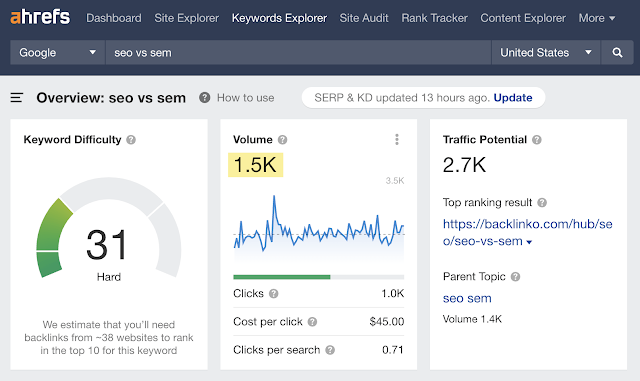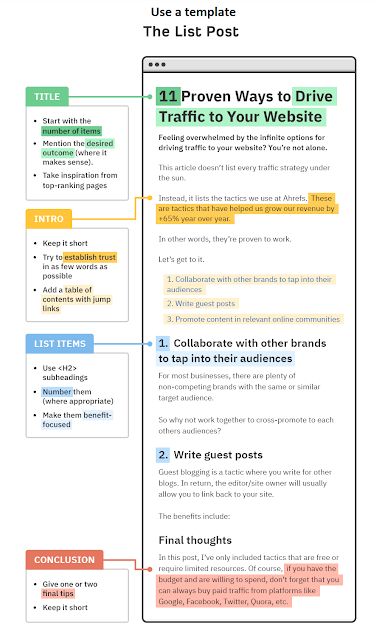SEO for Beginners or Niche Market 2023 Complete Course in 7 Chapters. SEO Basics Introduction, Why is it Important ? How does it Work in Search Engine Optimization ?
At Written Updatez, we write SEO friendly and unique content for you. We have many blog posts related to SEO factors for giving you meaningful & useful information.
If you find any mistake in this article then inform me by the comment box which is in the last of this article.
In this SEO friendly article, we cover the complete SEO Course for Beginners in 7 Important Chapters with basic introduction of SEO, SEO important, its working method and how does it work? Complete details you can know here.
What Is SEO (for Beginners) ?
SEO helps websites rank higher in search engines by improving their content and structure, generating more traffic and sales. Techniques include keyword research, on-page optimization, and link building.
Natural sharing: When others share your content without you promoting it.
Helpful content: Creating content your audience enjoys can help your website rank higher in search results.
Google indexing: Making your website easy for Google to understand and find your content. Always write Unique SEO friendly marketing content.
Relevant keywords: Using words your audience searches for in your content can help your website show up in relevant search results.
Why is SEO Important ?
You've probably heard hundreds of times that search engine optimization (SEO) is an essential digital marketing tool. But do you really know how SEO works? Even if you have a basic understanding of what it entails, you may not have a strong understanding of this complex and multifaceted phenomenon.
SEO is many things, and knowing what it is and how it works is key to understanding why SEO is so important. In short, SEO is important because it increases your website's visibility, which means more traffic and more opportunities to convert prospects into customers. Check out the SEO tools you can use to improve your rankings.
It's also a valuable tool for increasing brand awareness, building relationships with potential customers, and establishing yourself as an authoritative and trusted expert in your field. So, here's everything you need to know about SEO and why it's so important to succeed in today's digital world.
How does search engine optimization work?
If you found this page from a Google search, you probably Googled (what is SEO) or (SEO).
This guide is published on Search Engine Land, an authoritative website with extensive knowledge and experience on the topic of SEO (we've been covering all variations of SEO, big and small, since 2006).
Originally published in 2010, our "What is SEO" page has garnered a total of 324,203 links.
In short, these factors (and others) have helped this guide gain a solid reputation with search engines, helping it rank #1 for many years. It has a collection of authentic and reliable signs, so it deserves to be ranked when someone searches for SEO.
But let's look at SEO more broadly. Overall, SEO works through a combination of:
People: The people or teams responsible for executing or ensuring the execution of strategic, tactical and operational SEO efforts.
Process: Actions taken to improve work performance.
Technology: Platforms and tools used
Activity: Final product or output.
Many other factors affect the way SEO works. This is followed by a high-level look at the most important knowledge and process elements.
SEO gets six main areas to work on:
1. Understand how search engines work.
Quite simply, if you want people to find your business through search on any platform, you need to understand the technical process behind how the engine works, and then make sure you increase that visibility. All provide the right "signals" to influence.
When talking about a traditional web search engine like Google, there are four distinct search phases:
Crawling: Search engines use crawlers to find pages on the web by following links and using sitemaps.
Rendering: HTML, JavaScript, and CSS information is used by search engines to create the appearance of a page.
Indexing: Search engines analyze the content and metadata of these pages and add them to their databases (although there's no guarantee that every page on your site will be indexed).
Ranking: Sophisticated algorithms analyze various signals to determine whether a page is relevant and of appropriate quality when a searcher types in a query.
But optimizing for Google search isn't the same as optimizing for search on other platforms, like YouTube or Amazon.
In the case of Facebook, factors such as engagement (likes, comments, shares, etc.) and who people connect with. Then, on Twitter, signals such as renewal, engagement, or the importance of the author's reputation.
To complicate things further: search engines have added elements of machine learning at the content level, making it difficult to say whether "this" or "that" led to better or worse performance.
2. Researching or Investigation
Research is an important part of SEO. Some forms of research that can improve SEO performance include:
Audience Research: It is important to know your audience or target market. Who are they (i.e. their demographic and psychological characteristics)? What are your pain points? What questions do they have that you can answer?
Keyword Research: This process helps you identify and synthesise relevant and valuable search terms that people are using on your pages, and understand the demand and competition to rank for those keywords are.
Competitive Research: What are your competitors doing? What are your strengths and weaknesses? What kind of content are they posting?
Brand/Business/Customer Research: What are their goals and how can SEO help achieve them?
Website Research: Various SEO audits can uncover opportunities and issues on the website that are preventing organic search success. A few audits to keep in mind are: Technical SEO, Content, Link Profile, and E-E-A-T.
SERP Analysis: This will help you understand the search intent of a given query (for example, if it's commercial, transactional, informational, or navigational) and create content that improves ranking or visibility. More likely to get.
3. Planning
An SEO strategy is your long-term action plan. You need to set goals and plan to achieve them.
Think of your SEO strategy as a roadmap. The path you choose may change and evolve over time, but the destination must remain clear and constant.
Your SEO plan may include the following:
Set goals (eg OKR, SMART) and expectations (eg deadlines/milestones).
Define and set meaningful KPIs and metrics.
Decide how to build and implement the project (internal, external, or hybrid).
Coordinate and communicate with internal and external stakeholders.
Select and apply tools/techniques.
Hire, train and build your team.
Budget
Measure and report results.
Document policies and procedures.
4. Create & Implement.
With all the research done, it's time to put your ideas into action. It means:
Create new content: Advise your content team on what content needs to be created.
Recommend or implement changes or improvements to existing pages: this includes updating and improving content, adding internal links, integrating keywords/topics/antics, or identifying other ways to improve it. Maybe.
Remove old, outdated, or low-quality content: types of content that rank poorly, drive conversion traffic, or help you achieve your SEO goals.
5. Monitoring and Maintenance
You need to know when your website is experiencing problems or outages. Monitoring is important.
You need to know if traffic to important pages is dropping, pages are slow, unresponsive or not indexed, your entire site is down, links are broken, or something else potentially disastrous. There is a problem.
6. Performance analysis, evaluation and reports
If you don't measure SEO, you can't improve it. To make data-driven decisions about SEO, you should use:
Web Analytics: Set up and use tools (at least the free ones like Google Analytics, Google Search Console, and Bing Webmaster Tools) to collect performance data.
Tools and Platforms: There are many all-in-one platforms (or suites) that offer a variety of tools, but you can also choose to use only select SEO tools to track the performance of specific tasks. Or, if you have the resources and nothing on the market meets your needs, you can make your own.
How to Learn SEO ?
We divided the SEO complete course in 7 chapters to learn easily. In these chapters we discuss the types of SEO, SEO basic, SEO content & other main points of SEO.
In Chapter 1
We cover that, How search engines work ? Before starting to learn SEO you need to know how it works. That's why we discuss it in the 1st chapter.
In Chapters 2
We discuss the basics of SEO or SEO introduction to learn more about SEO types you need to know about the basics of SEO. That’s why we discuss it in the 2nd chapter.
In Chapter 3
We learn keyword research. How keyword research helps or works to rank in search engines. The starting point of SEO is understanding the target keyword.
In Chapter 4
We discuss content. How to create content, how to write SEO friendly unique content, creative content & more to rank in search engines.
In Chapter 5
We discuss the one type of SEO name On-page SEO. It is important to learn because it optimize your pages and helps to understand search engines.
In Chapter 6
We learn Link building. How do search engines discover our new pages with link building ? how it increases our website authority. How does it help us to rank ? Why is Link building important ? and How to create new links for our site.
In Chapter 7
We discuss other types of SEO like Technical SEO. It’s important to know that there are no technical faults in the page and google prevents understanding.
Closing Words
SEO is very important if you are working in a search engine and want to get high rank. Successfully scaling the production of high-quality SEO complete courses with chapter wise can have a huge positive impact on your business.




No comments:
Post a Comment